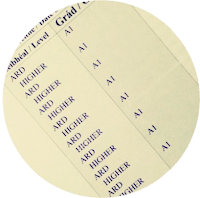Text 1. Question A. (i)
Throughout the extract Ray reveals quite a lot about how he is feeling, both emotionally and mentally.
From the beginning Ray’s mood seems sombre. He uses dark comparisons whilst describing his journey such as ‘deep as old people’s graves’ and ‘ten thousand bottomless ruts’. He also describes people as ‘uncaring strangers’. All of this indicates that Ray is feeling isolated and overall quite down.
As time goes on he reveals that he doesn’t know exactly where they are traveling to and that this prospect isn’t as ‘exciting’ as he believed it would be. I think this shows the instability of his plan and is mirrored in his feelings. He is ridden with fears: he find the lack of routine “terrifying.” His anxiety becomes evident as he quickly starts to panic and become more and more distressed until he ‘forgets how to breathe’. The repetition of “driving” and words like “never ending reel” signify that his mind is moving in tormenting circles too.
He reminds himself of why he ‘must go on’ and he calms down. Ray wonders whether this is how everyone else feels underlining the extent of his isolation. Probably the most predominant emotion ray is feeling is his love for his dog – the one calming influence in his life. We can see this for the duration of the extract, from the way he talks to his dog to the sacrifice he is making for him.
Another aspect of Rays mental state is presented when he talks to the girl in the post office. He describes feeling ‘smaller and smaller and smaller’ when she can’t hear him speaking. This shows how shy and insecure he is around people. Perhaps this lack of confidence around people is why he loves his dog so much.
Overall, Ray seems to feel lonely and scared, but his love and desire to protect his dog keeps him going.
(ii)
I think that aspects of both Ireland’s current culture and landscape are depicted very well throughout the extract.
Lovely imagery is used to describe the countryside and villages. From the ‘potholes wide as children’s paddling pools’ and ‘fairy circle’ to ‘bizarrely organised’ shop, I believe the authenticity of the Irish countryside is strongly portrayed. The way everything is represented really resonates with me. Having lived in a village my entire life, the similarities of these descriptions and my own home are significant. Especially touching is the description of the “old-man shop” in the penultimate paragraph: the author acknowledges the bizarre arrangements, yet there is something in his description that makes it endearing.
Although there is more emphasis on the more old-time nature of the countryside, there are little nods to the more contemporary aspects of Irish life throughout the text. Ray describes an ‘unfinished palace’ with ‘no fewer than twelve windows’ a common sight in a post-recession Ireland. He talks about ‘featureless bungalows’, ‘abandoned traffic cones’ and how a ‘village becomes a town’ when you add a few extra amenities, these all seem like subtle representations of our rapid modernisation as a country.
I don’t think the social aspect of Irelands culture is wholly represented in the extract. Considering Ireland is regarded as one of the friendliest nations, ‘uncaring strangers’ doesn’t seem like a fair representation of the nation’s people. On the other hand, I think Ray’s feelings of loneliness and general unhappiness are a good insight into depression, a large problem in Ireland.
On the whole, I feel as though the extract illustrates a fairly accurate picture of present day Ireland.






